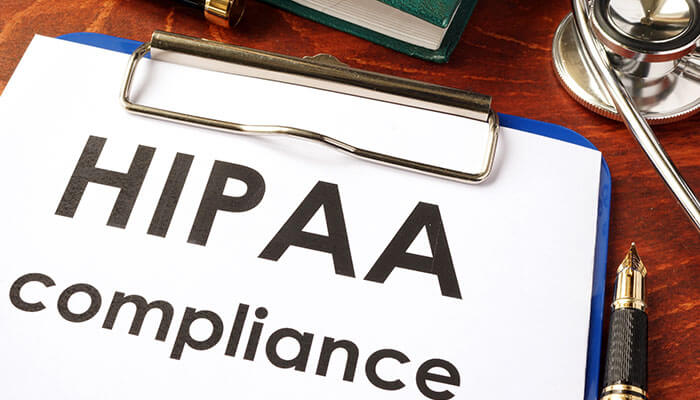If you’re a healthcare professional working remotely, you’ve probably wondered how to stay HIPAA compliant while handling sensitive patient information. This comprehensive guide will walk you through the steps to protect patient privacy and avoid violations. So, let’s dive in and learn how to work remotely without compromising HIPAA compliance!
Understanding the Basics of HIPAA Compliance
Let’s understand the basics of HIPAA before we proceed. When it comes to incidental exposure to HIPAA, this term refers to the unintentional or accidental disclosure of protected health information (PHI) that occurs while carrying out your usual job duties. Although healthcare professionals try their best to prevent such occurrences, knowing the steps to take is essential if incidental exposure to HIPAA happens. To maintain HIPAA compliance while working remotely, you need to understand the basic principles and requirements. HIPAA is a federal law governing patient information privacy and security. It applies to healthcare providers, health plans, healthcare clearing houses, and their business associates who handle PHI.
Creating a Secure Workspace
To keep your remote workspace HIPAA compliant, you need to make sure that all devices and networks you use are secure. Here are some steps to create a secure workspace:
- Use strong, unique passwords for all your accounts and devices.
- Enable multi-factor authentication (MFA) wherever possible.
- Keep your software and devices updated with the latest security patches.
- Use a virtual private network (VPN) to encrypt your internet connection.
- Install reputable antivirus and firewall software to protect against malware and hacking attempts.
Handling PHI Safely and Responsibly
When working with PHI remotely, you need to be extra cautious in handling and storing this sensitive information. Here’s how to handle PHI safely:
- Access PHI only through secure, encrypted connections.
- Avoid using public Wi-Fi networks to access or transmit PHI.
- Store PHI on secure, encrypted devices, and avoid storing it on personal devices.
- Do not discuss PHI in public places or around family members.
- Use secure methods, like encrypted email, to transmit PHI to authorized recipients.
Implementing a Remote HIPAA Compliance Plan
To ensure that your remote work setup remains HIPAA compliant, it’s crucial to have a plan in place. Here’s what to include in your remote HIPAA compliance plan:
- Develop clear policies and procedures for handling PHI remotely.
- Train all employees on HIPAA regulations and remote work best practices.
- Conduct regular risk assessments to identify and address potential vulnerabilities.
- Establish a breach response plan to handle any incidents of unauthorized PHI access or disclosure.
- Regularly review and update your remote HIPAA compliance plan to stay current with new regulations and technological advancements.
Communicating with Patients and Colleagues
Keeping your communications secure and private is vital for HIPAA compliance when working remotely. Here are some tips for maintaining privacy while communicating with patients and colleagues:
- Use secure, HIPAA-compliant communication platforms for video calls, messaging, and file sharing.
- Verify the identity of patients and colleagues before discussing PHI.
- Limit the amount of PHI shared during communications to the minimum necessary.
- Before sharing their PHI with other providers or organizations, obtain written consent from patients.
Conclusion:
Working remotely as a healthcare professional can be challenging, but following the guidelines in this comprehensive guide can maintain HIPAA compliance and protect patient privacy. Remember to create a secure workspace, handle PHI responsibly, implement a remote compliance plan, and use secure communication methods. By taking these steps, you can ensure the safety of patient information and avoid costly HIPAA violations.



